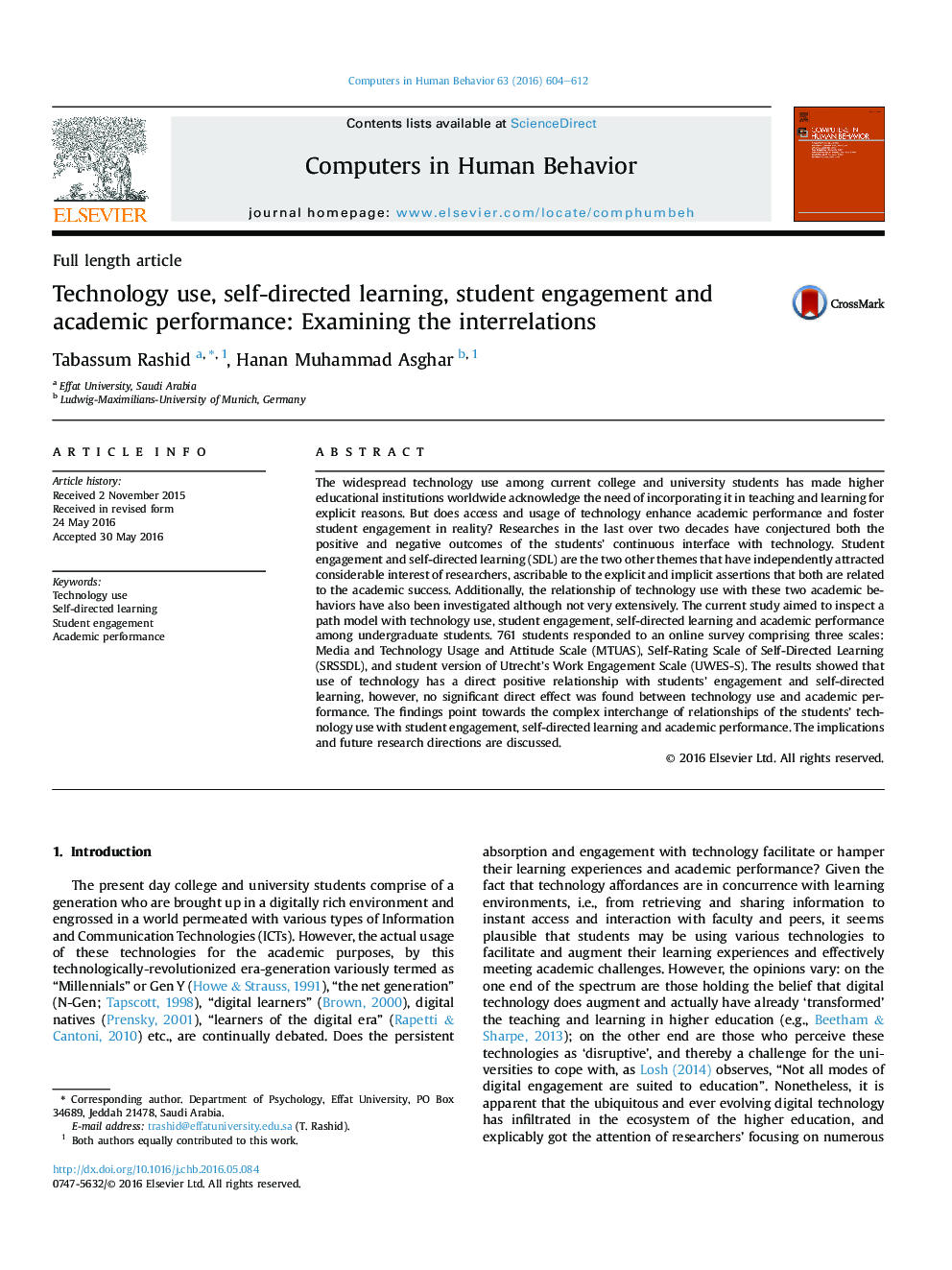| کد مقاله | کد نشریه | سال انتشار | مقاله انگلیسی | نسخه تمام متن |
|---|---|---|---|---|
| 6836760 | 618425 | 2016 | 9 صفحه PDF | دانلود رایگان |
عنوان انگلیسی مقاله ISI
Technology use, self-directed learning, student engagement and academic performance: Examining the interrelations
ترجمه فارسی عنوان
استفاده از فناوری، یادگیری خودگردان، مشارکت دانش آموزان و عملکرد تحصیلی: بررسی ارتباطات
دانلود مقاله + سفارش ترجمه
دانلود مقاله ISI انگلیسی
رایگان برای ایرانیان
کلمات کلیدی
استفاده از فناوری، یادگیری خودآموز، مشارکت دانشجویی، عملکرد تحصیلی،
موضوعات مرتبط
مهندسی و علوم پایه
مهندسی کامپیوتر
نرم افزارهای علوم کامپیوتر
چکیده انگلیسی
The widespread technology use among current college and university students has made higher educational institutions worldwide acknowledge the need of incorporating it in teaching and learning for explicit reasons. But does access and usage of technology enhance academic performance and foster student engagement in reality? Researches in the last over two decades have conjectured both the positive and negative outcomes of the students' continuous interface with technology. Student engagement and self-directed learning (SDL) are the two other themes that have independently attracted considerable interest of researchers, ascribable to the explicit and implicit assertions that both are related to the academic success. Additionally, the relationship of technology use with these two academic behaviors have also been investigated although not very extensively. The current study aimed to inspect a path model with technology use, student engagement, self-directed learning and academic performance among undergraduate students. 761 students responded to an online survey comprising three scales: Media and Technology Usage and Attitude Scale (MTUAS), Self-Rating Scale of Self-Directed Learning (SRSSDL), and student version of Utrecht's Work Engagement Scale (UWES-S). The results showed that use of technology has a direct positive relationship with students' engagement and self-directed learning, however, no significant direct effect was found between technology use and academic performance. The findings point towards the complex interchange of relationships of the students' technology use with student engagement, self-directed learning and academic performance. The implications and future research directions are discussed.
ناشر
Database: Elsevier - ScienceDirect (ساینس دایرکت)
Journal: Computers in Human Behavior - Volume 63, October 2016, Pages 604-612
Journal: Computers in Human Behavior - Volume 63, October 2016, Pages 604-612
نویسندگان
Tabassum Rashid, Hanan Muhammad Asghar,
